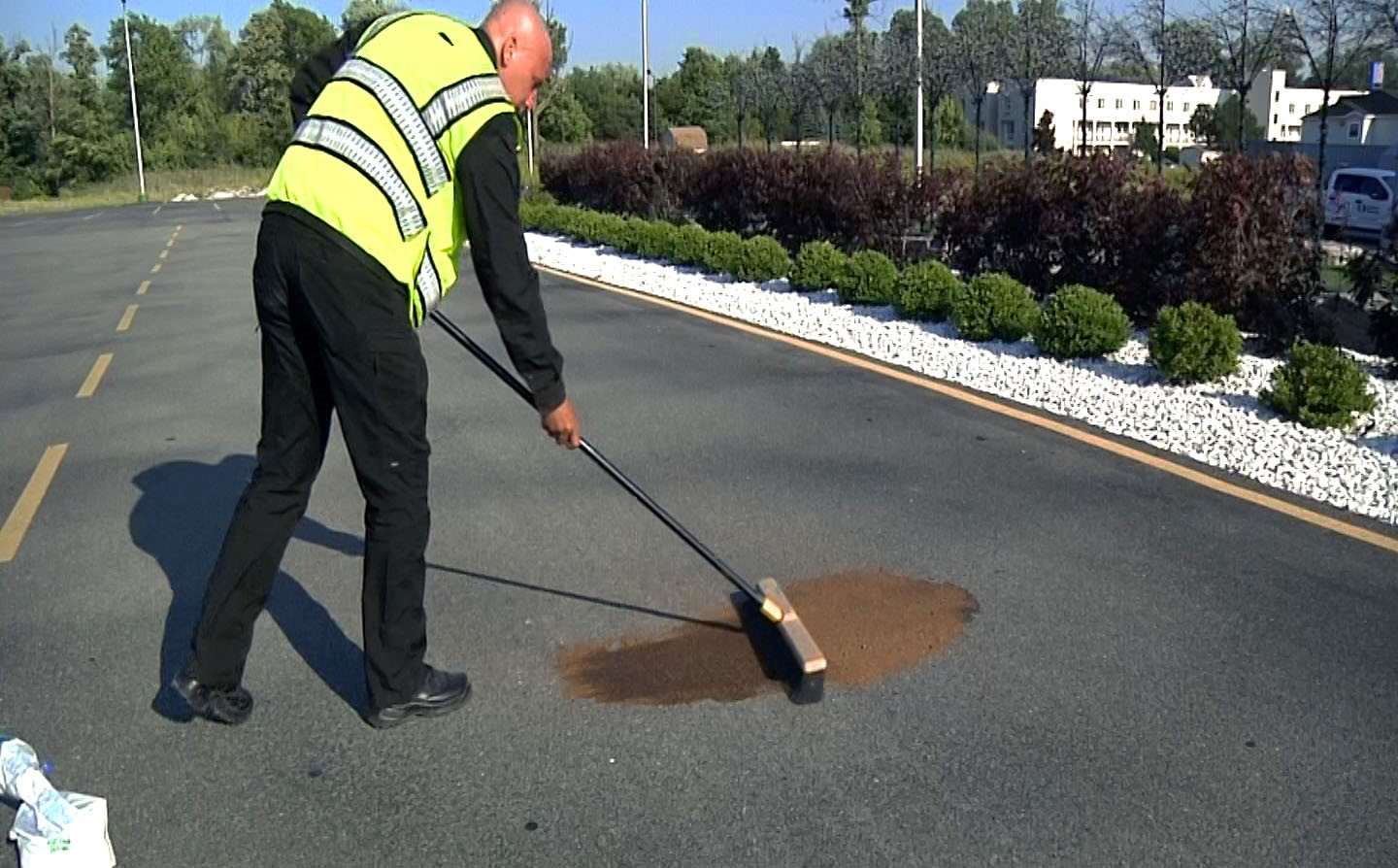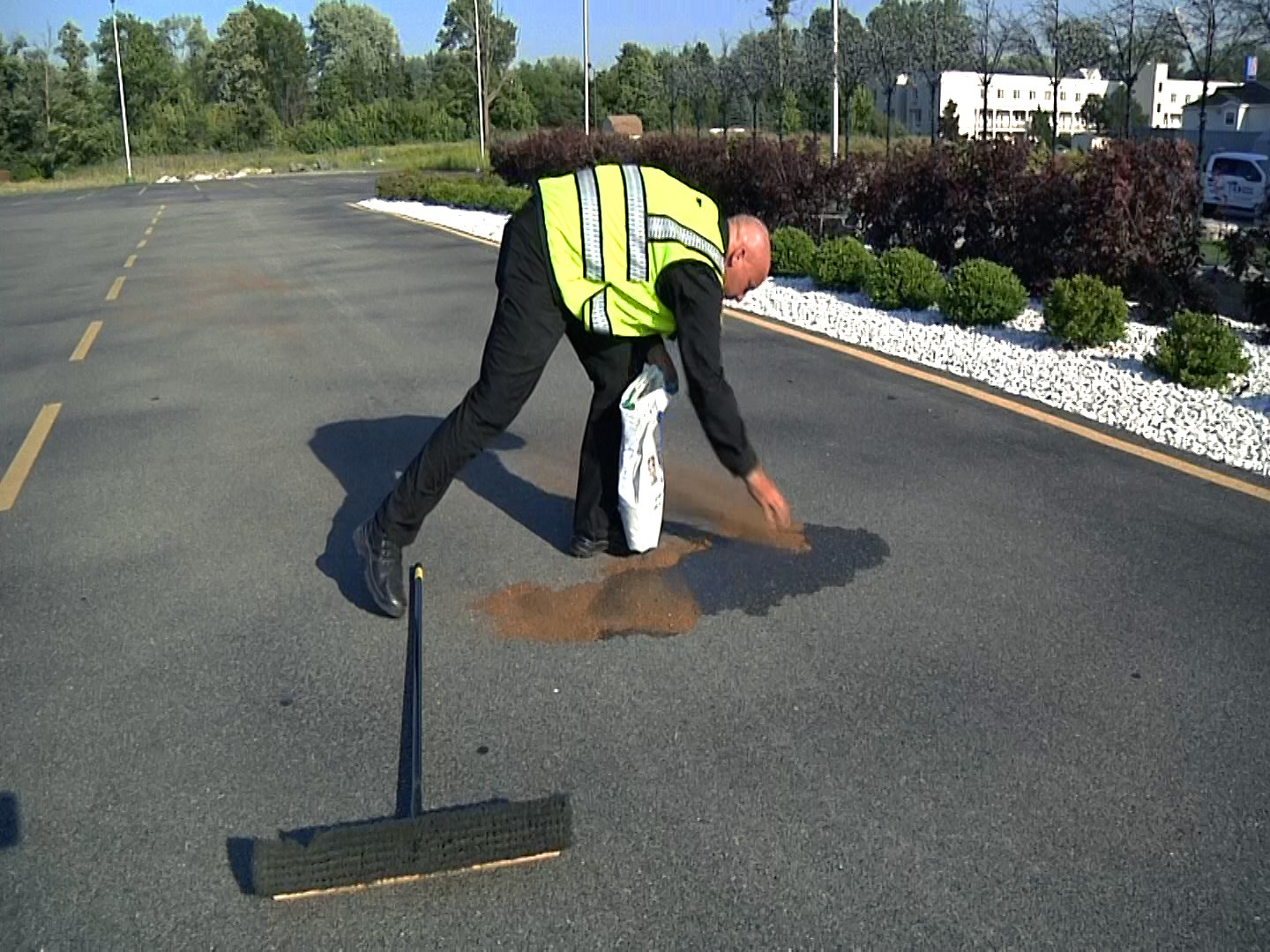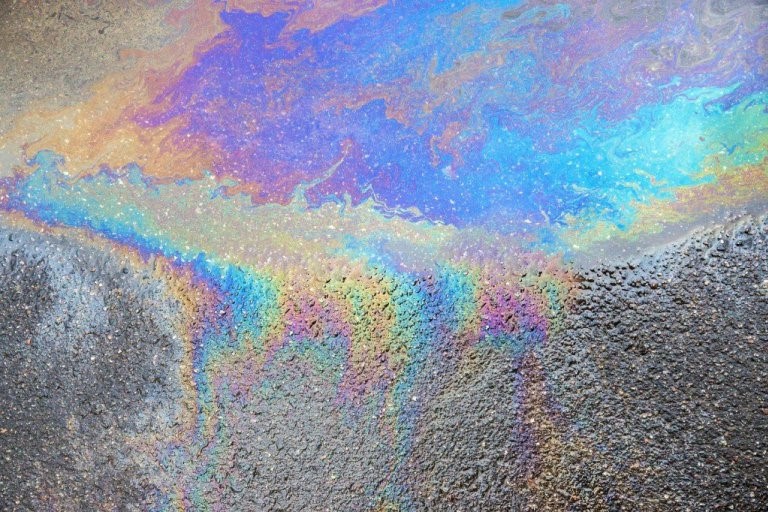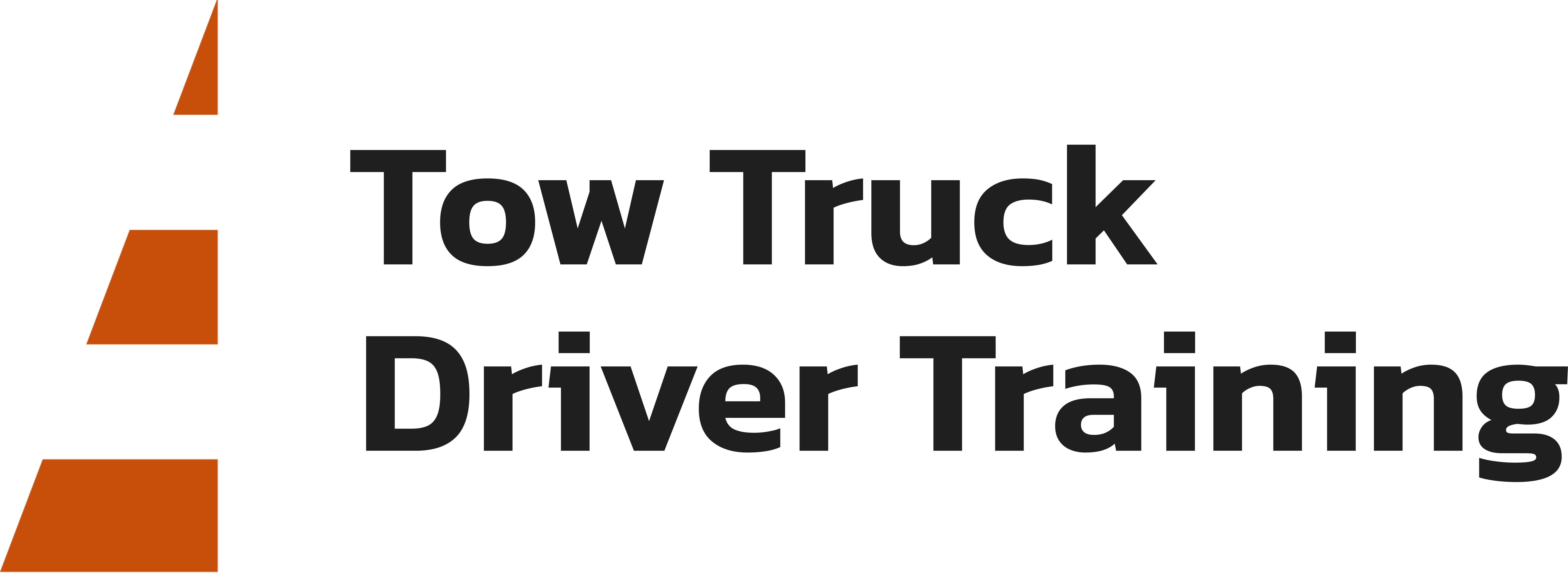Scene Cleanup & Hazardous Materials
WHY WE CLEAN THE SCENE
As a towing professional, it is an operator’s responsibility to leave the scene as undamaged and clean as possible. This includes scene clean up. Leaving debris, glass or automotive fluids at scene poses a danger to both vehicles and pedestrians and can lead to further incidents. Additionally, the public views towers as professional trade workers; you wouldn’t expect a plumber or contractor to leave debris from a project behind. The same is expected to tow operators.
When operators choose to view scene clean up as a responsibility and not a chore, they are helping improve the image of the industry and make the road safer for everyone.
SWEEPING
Keeping a broom and shovel in the truck can help make scene clean up quick and easy. Use the broom to collect debris. The shovel can be used to both lift debris and function as a dust pan. The shovel should already be on your truck for jobs that are in snow or mud. Be sure to wear gloves and glasses while handling debris on scene
When cleaning, do not just move glass and debris to the side of the road. Keep garbage bags and empty buckets in your truck. They can be used to transport material to the lot or back to the dump. Most jurisdictions require a minimum size of bucket, so be sure to check the local requirements. Be sure to check with the owner before disposing of any large pieces of debris.

ENGINE OIL & GASOLINE SPILLS
When dealing with a liquid spill, first make sure that the spill is contained. This can be done by placing lumber or a towel around the spill. Once the spill has been contained, use a dry substance to absorb the oil. Three common substances used to absorb oil and gas are:
- Cornstarch – cornstarch is a thickening agent and will absorb oil and gas from almost any surface. Cover the entire area and let sit for five minutes before sweeping it up.
- Cat litter– similar to cornstarch, simply cover the whole spill and let sit for a few minutes before cleaning. Be sure the litter is oil absorbant.
- Dirt – dirt found roadside can be an effective substance to clean oil and gasoline provided that the dirt is dry.
Regardless of substance used to absorb the fluids, be sure to dispose of it properly. Gasoline and engine oil are harmful for the environment and should never be left on the road, in a parking lot or swept the side of the roadway.

HAZMAT
Following an accident or collision, it is the tower’s responsibility to ensure that the scene is appropriately cleaned up prior to leaving the area. This includes cleaning any debris, glass or fluids that came from the casualty. However, most engine fluids are classified as hazardous materials. While any operator can clean a spill, removal typically must be handled by an individual who is certified in hazmat. Every jurisdiction will have differing rules regarding hazmat. It is recommended for operators to have some sort of hazmat training or at least have certified operators on staff.
When there is a hazardous material spill at an incident, it is the responsibility of the vehicle owner to have it cleaned. That means a towing company may choose to charge extra for remediate and removal.
AUTOMOTIVE HAZMAT
While not all automotive fluids are considered hazardous, it is important for an operator to know which fluids cannot removed from the scene without training. It is essential that these items are removed from the scene as they pose a significant danger to the environment and the general public.
HAZORDOUS MATERIALS
Automotive hazardous materials must first be contained so the spill does not spread. This can be done by placing towels or pieces of wood around the spill.
After the spill has been contained, it must be remediated. This can be done with a substance that can absorb the fluid, such as cornstarch, oil absorbent cat litter or dry dirt. The material is then safe to remove from the scene.
When dealing with hazardous materials on scene, remember Contain, Remediate, Remove.

REPORTING SPILLS
Hazardous material spills must be reported. The contact information for the local reporting authority should be stored in your company manual. It is suggested that this information is stored in every vehicle a towing company used.
Not all spills must be reported, however. If a spill is under a certain volume or amount of hazardous materials, it is exempt and may be removed by a certified hazmat operator without reporting. Volume will vary depending on jurisdiction, so be sure to familiarize yourself with your local requirements.
